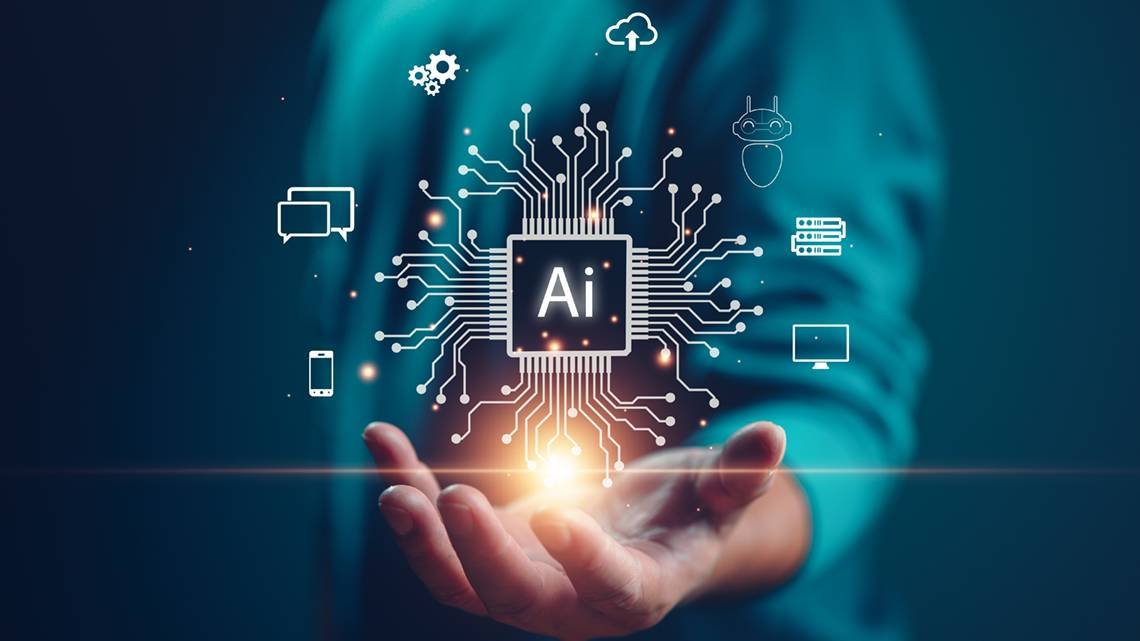AI’s Integral Role: exploration of space has been fundamentally transformed by the integration of artificial intelligence (AI) into various aspects of space missions. From autonomous spacecraft to space robotics and advanced data analysis, AI has become a cornerstone in expanding our understanding of the cosmos. The historical context reveals the gradual evolution of AI’s role, starting with rudimentary systems in trajectory calculations during the early space missions of the 1950s and 1960s.
Milestones such as the Viking missions to Mars in the 1970s marked a turning point, showcasing the capability of AI in lander operations and data analysis. In the 21st century, AI has become deeply ingrained in space exploration, with space robotics and AI-driven data analysis revolutionizing our approach to cosmic exploration.

Current Applications
1. Autonomous Spacecraft and Probes:
AI’s influence is evident in the development of autonomous spacecraft and probes. These vehicles, such as NASA’s Juno spacecraft studying Jupiter, can make split-second decisions, adapt to unforeseen challenges, and operate with a remarkable degree of independence. This autonomy allows them to explore distant celestial bodies and gather data without constant human intervention.
2. Space Robotics and Astronaut Assistance:
Space robotics, guided by AI algorithms, has become essential in supporting astronauts during space missions. From the Canadarm on the Space Shuttle to the Robonaut aboard the International Space Station, AI-driven robots perform tasks ranging from delicate repairs to scientific experiments, enhancing mission efficiency and reducing risks associated with extravehicular activities.
3. AI in Data Analysis and Telescopes:
AI’s role extends to data analysis and telescopes, where algorithms process vast amounts of data collected by instruments like the Hubble Space Telescope. This accelerates the identification of celestial phenomena, enabling breakthrough discoveries and unraveling mysteries such as those related to distant galaxies, exoplanets, dark matter, and dark energy.
AI in Planetary Exploration
1. Rovers and Drones on Mars and Other Planets:
AI’s impact on planetary exploration is exemplified by rovers and drones, particularly on Mars. Rovers like Curiosity and Perseverance operate autonomously, making decisions on navigation, rock analysis, and data transmission. AI-driven exploration also extends to the moon and asteroids, laying the groundwork for future human exploration.
2. AI’s Role in Analyzing Exoplanets:
In the quest to discover exoplanets, AI assists in processing vast datasets from telescopes like Kepler and TESS. These advanced algorithms identify variations in a star’s brightness caused by exoplanet transits, aiding in the identification and characterization of distant planets and their atmospheres.
AI’s Contribution to Deep Space Exploration
1. Beyond Your Solar System:
AI’s pivotal role in deep space exploration is evident beyond our solar system. In interstellar exploration, autonomous spacecraft equipped with AI intelligence navigate vast distances, make course adjustments, and conduct scientific experiments over extended periods of isolation. Iconic examples include the Voyager probes, which continue their journey into interstellar space.
2. The Search for Extraterrestrial Intelligence (SETI):
In the quest for extraterrestrial intelligence, AI is employed in projects like the Allen Telescope Array to analyze vast cosmic radio spectra. These sophisticated algorithms help identify potential signals from advanced civilizations, showcasing AI’s contribution to the grand quest for interstellar exploration.
Challenges and Ethical Considerations
1. AI’s Impact on Space Policy and Governance:
The integration of AI into space exploration necessitates a reevaluation of existing space policies and governance frameworks. Addressing questions related to data sharing, intellectual property, and international cooperation is crucial to striking a balance between fostering innovation and ensuring responsible AI use.
2. Ethical Dilemmas in Autonomous Space Exploration:
The rise of autonomous spacecraft raises ethical dilemmas, particularly regarding decisions impacting scientific objectives and moral concerns. Establishing ethical guidelines and decision-making frameworks is essential to address scenarios where autonomous spacecraft encounter potential signs of extraterrestrial life or unintentionally impact celestial bodies.
3. Ensuring the Responsible Use of AI in Space:
To harness the full potential of AI in space exploration, a robust framework for responsible AI use is imperative. Transparency, accountability, and ethical guidelines should govern the development and deployment of AI technology in space. Regular audits and assessments should be conducted to identify biases or risks, and international collaboration is vital to promoting responsible AI usage globally.
The Future of AI in Space Exploration
1. Advancements in AI and Machine Learning:
The future of AI in space exploration is closely tied to advancements in AI and machine learning technologies. AI systems will become more adept at handling complex tasks, learning from vast datasets, and making autonomous decisions. Precision in spacecraft navigation, dexterity in space robots, and enhanced data analysis capabilities will mark future breakthroughs.
2. Potential Breakthroughs and Missions on the Horizon:
Future missions promise audacious exploration, driven by AI. Missions to the icy oceans of Europa, Saturn’s moon Enceladus, and celestial bodies in the Kuiper Belt are on the horizon. AI-driven telescopes and observatories will intensify the search for extraterrestrial life and habitable exoplanets. Human space exploration endeavors, like the Artemis program, will integrate AI for habitat management, resource utilization, and astronaut assistance.
Final Thoughts
AI emerges as the unsung hero in the narrative of space exploration, transforming humanity’s cosmic odyssey. From a humble assistant on early missions to a visionary navigator of autonomous spacecraft, AI has reshaped our understanding of the cosmos. As AI continues to lead us into unprecedented discoveries, addressing ethical questions and policy considerations is essential to preserving the integrity of space exploration. The future promises boundless advancements, with AI as our cosmic companion in an ever-expanding journey into the cosmos.



















































